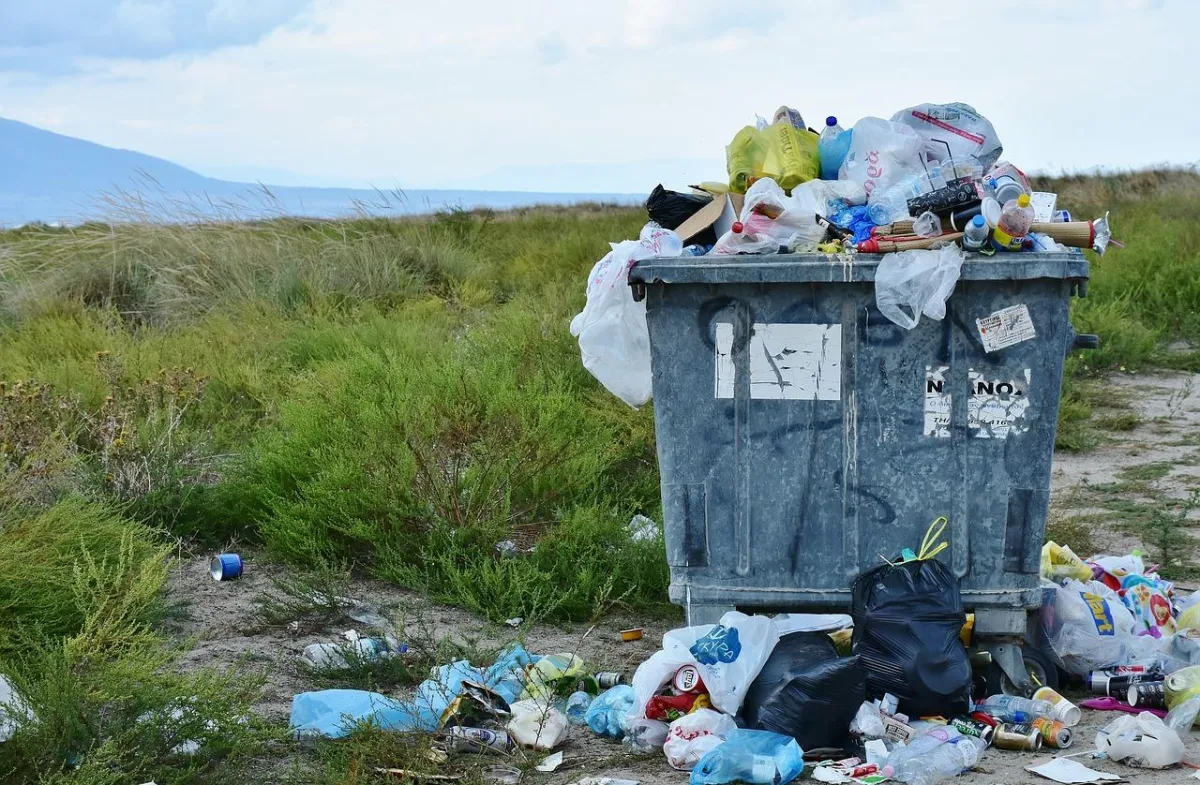Blog

Another Recycling Nightmare, alarming levels of synthetic fibers in our landfills
The negative impacts
Once synonymous with creativity and style, the fashion industry faces an escalating waste problem that demands urgent attention. With nearly all clothing ending up in landfills, the negative impacts of fast fashion, multinational production, and cheap synthetic fibers have reached alarming levels. In addition, the industry’s greenhouse gas emissions now exceed those of international air travel and ocean shipping combined. Despite attempts at recycling, less than 1% of textiles are successfully transformed into new clothing, largely due to the challenges of blending different fibers.
But amid these concerns, promising startups and pioneering companies like Levi’s and Adidas are leading the way

toward sustainable solutions. To achieve lasting change, regulatory reform and a shift in consumer behavior are essential.
The fashion industry’s waste crisis is undeniable, with the majority of clothing ending up in landfills. Fast fashion, characterized by rapid production cycles and disposable garments, has exacerbated the problem. In addition, the proliferation of multinational production and the use of cheap synthetic fibers have added to the industry’s waste dilemma. As a result, greenhouse gas emissions from the fashion sector now exceed those from international air travel and ocean shipping.
Despite efforts to promote recycling, the industry has struggled to achieve significant results. Less than 1% of textiles are effectively recycled into new clothing, largely due to the complex nature of the blended fibers commonly used in apparel manufacturing.
Who is going to lead the way?
Recognizing the urgency of the situation, industry leaders like Levi’s and Adidas are taking steps to incorporate recycled materials into their manufacturing processes. Levi’s iconic 501 blue jeans now contain 40% Renewcell fiber and 60% organic cotton. By prioritizing the use of organic cotton and investing in sustainable materials, these companies are demonstrating their commitment to sustainable practices. Adidas, for example, is on track to use only recycled polyester by the end of 2023, surpassing its original goal. Such initiatives set a strong example for the industry and drive change from within.

To ensure widespread transformation, regulatory changes and consumer behavior play an integral role. Increased regulation, as seen in the EU’s Waste Framework Directive and Circular Economy Action Plan, is critical to driving business models for textile recycling. Similarly, consumers need to prioritize the responsible disposal of clothing and support brands that are committed to sustainability. By making informed purchasing decisions and demanding transparency, consumers can steer the industry towards environmentally responsible practices.
In addition to recycling materials within the fashion industry, it’s important to address other pressing environmental issues. One important step is to address ocean pollution by recycling bottles and other plastic waste from the ocean.
By reusing these materials, we not only reduce the amount of waste in our oceans but also contribute to the creation of sustainable fashion items. Initiatives focused on recycling ocean plastics align with the broader mission of creating a circular economy and highlighting the interconnectedness of environmental challenges. By recognizing and addressing these issues together, we can build a more sustainable and responsible fashion industry for future generations.

About PhilanthroInvestors
PhilanthroInvestors combines traditional venture capital financing tools with philanthropic principles to achieve social impact. By secure, meaningful, and profitable investments, they bring capital and also change people’s lives.
PhilanthroInvestors are currently working in four sectors – Housing, Water, Health and Environment – and will be adding more investment sectors in the future. PhilanthroInvestors founder Ivan Anz owns companies on three continents and has investors in 14 countries.
Discover how investing with us can secure your future. Get in touch here.
© 2024 l PhilanthroInvestors®
THE CONTENT OF THIS SITE DOES NOT CONSTITUTE AN OFFER TO SELL OR THE SOLICITATION OF AN OFFER TO BUY ANY SECURITIES.





